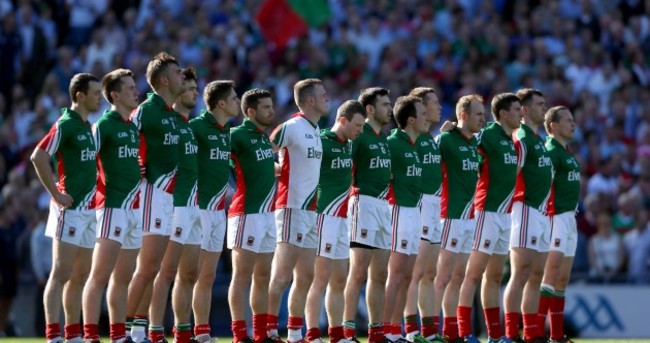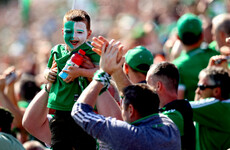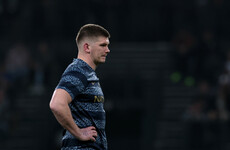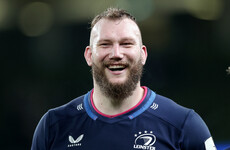26. Lance Armstrong, Antihero — The Atlantic
“In the year since the U.S. Anti-Doping Agency released a stinging 202-page report containing allegations that Armstrong had been doping and lying about it for more than a decade, Armstrong’s popularity has taken a serious hit. Some critics didn’t care that he confessed to and apologized for his actions; as one USA Today columnist put it, “Whatever he said, no one should mistake it for anything other than self-serving truth, admitted only after lies no longer worked,” and as the authors of Wheelmen note, other athletes like champion triathlete Chrissie Wellington angrily distanced themselves from his endorsements. Armstrong was named 2012’s “Sports Villain of the Year” in a British poll, winning by a hefty margin.”
27. The Burdened Walk — Grantland on Tiger Woods
“He walks a burdened walk now, even when it is going well. He walks the same way, above par or below, birdie or bogie. He birdies and he tips his cap, but his head is down. He talks to the ball more when it is in flight — “Get right!” “Down, DOWN!” — than he once did. By contrast, on Saturday, Phil Mickelson had a round so bad he should have been escorted off Oak Hill by the EPA, and he looked like he was having more fun than most of the gallery was. His steps were light and his smile was easy. He did not walk the burdened walk. But he did blow town quickly.
“Of course, Mickelson won the British Open a couple weeks ago, and he’s not the guy who defined his career success by how many majors he won. Woods was never effervescent, even in the glorious heart of his young career, but he didn’t look the way he does now, coming up the fairway toward the green like an aging farmer coming to work in fields he knows are burnt and fallow but remembers with fondness and with pain the verdancy they once had.”
28. Gregg Gethard on the first openly gay wrestler — The Classical
“Darren Young is far from a huge name in wrestling. Currently, he’s one-half of a tag team dubbed The Prime Time Players. They’re goofy heels who boast about having “millions of dollars” that they use to party in nightclubs; there was, naturally, a signature dance done while chanting all this. Because it’s their job, they usually and effectively “put guys over” – parlance for losing matches to opponents the WWE has big plans for. Darren’s known for doing the little things required of the role; he’s willing to throw his body all over the ring to make his assigned enemy look good, and also pulls very good facial expressions to demonstrate his cockiness. And he’s also seemingly willing to play second banana to his partner, Titus O’Neil, a former Florida State football player dripping with charisma but lacking polish and someone whose WWE career will almost certainly climb beyond being one of two Prime Time Players.
“All of which is to say that Young serves the same purpose as Jason Collins – a bench guy who can come in for a few minutes, bang for a few put-backs and rebounds, play somewhat effectively post defense and generally not fuck things up. This is a solid gig, if also a somewhat tenuous one. Both Collins and Young have, potentially, a great deal to lose through their decisions to announce who they really are. More to the point, they could very well lose it.”
29. Alan O’Mara on depression — GAA.ie
(Cavan goalkeeper Alan O’Mara pictured during this year’s All Ireland Senior Championship Quarter-Final – INPHO/James Crombie)
“After he showed me to my quarters for the night he went into his room, shut his door and I presume he nodded off to sleep like any normal person.
“Me? I took a sleeping tablet but even that didn’t knock me out. Altogether that night I got three hours of sleep. I’m taking sleeping tablets and I still can’t sleep. I mean, what the hell is wrong with me? This has been happening nightly for a while now so I came prepared for my insomnia, on this occasion in an unfamiliar house. I stay up reading Olympic boxer Kenny Egan’s book in the hope that it might distract the hushed whispers in my head enough so that I will be able to get to sleep.
“Tiredness gradually descends upon me and my eyes get heavy so I turn off the bedside lamp and close them, desperately hoping to get some much needed sleep. It’s a complete waste of time. Thought after thought races around my head. After switching to my iPod I eventually dose off but by 7am I’m wide awake again. That voice is talking to me once more.”
30. The Third Man — The New Yorker on Novak Djokovic
“He has a goofy sense of humor. A few years ago, he became famous for his imitations—Rafael Nadal picking at his wedgie, Roger Federer prancing swaybacked along the baseline. At an exhibition in Bratislava last year, he stuffed his shirt with sweat towels and hitched up an imaginary skirt. That was Serena Williams.
“He speaks five languages beautifully. He never met a meme he didn’t like. The other night, after a match, he pulled an Afro wig out of his racket bag and danced to “Get Lucky.” A book he recently enjoyed was “The Secret,” by Rhonda Byrne. He absolutely believes one hundred per cent in that kind of philosophy of life. You attract things the way you think. You are what your thoughts are!”
31. Michael Jordan has not left the building – ESPN
(Michael Jordan pictured during his Chicago Bulls days — BETH A. KEISER/AP/Press Association Images)
“The television is built into the modern stone fireplace in his sprawling downtown condo, the windows around them overlooking Tryon Street. An open bottle of Pahlmeyer merlot sits on an end table. Buckner, a former NBA guard from near Chicago and a Pacers broadcaster, is in town for an upcoming game. They’ve been talking, about Jordan’s birthday and about the changes in his life, all seeming to happen at once. Jordan feels in transition. He moved out of his house in Chicago and is moving into a new one in Florida in three weeks. He’s engaged. Inside he’s dealing, finally, with the cost of his own competitive urges, asking himself difficult questions. To what must he say goodbye? What is there to look forward to? Catching an introspective Jordan is like finding a spotted owl, but here he is, considering himself. His fiancée, Yvette Prieto, and her friend Laura laugh over near the kitchen island. Jordan relights his cigar. It keeps going out.”
32. An Open Letter to the Mayo team – Mayo News
“You’re the reason we clutched at straws in the gale. 1985 when Mayo and Monaghan were in the All-Ireland semi-finals and some pleb told us Old Moore’s predicted two M’s would meet in the All-Ireland. We scoured every page for confirmation, but two M’s for the Maam Cross Fair was as near as we got.
“We just want from you one September Sunday when an unimaginable world unfolds.”
33. Richard Keys interview — The Independent
“‘When [Sky Sports] were signing left, right and centre, I said, ‘I wouldn’t do that’. Sky have done their money. They’ve done their money on [Gary] Neville and [Jamie] Carragher and [Graeme] Souness and they haven’t got the money to pay anyone else. And with the regularity of those three, the novelty will wear off.’
“Not that this upsets Keys; that leaves more guests to go on Al Jazeera. ‘We have had a whole host of people come and see us. Keegan, Shearer. Hoddle is coming. We’ve had Peter Reid. We’ve had David Platt. Peter Schmeichel is coming. Terry Venables is coming,’ Keys says. ‘David O’Leary has just come back. Mark Hateley has been here. You name them. If they haven’t been, they will be coming.’”
34. Ferguson’s Formula — The Harvard Business Review
“When I arrived, only one player on the first team was under 24. Can you imagine that, for a club like Manchester United? I knew that a focus on youth would fit the club’s history, and my earlier coaching experience told me that winning with young players could be done and that I was good at working with them. So I had the confidence and conviction that if United was going to mean anything again, rebuilding the youth structure was crucial. You could say it was brave, but fortune favors the brave.”
35. The last great American prizefighter — ESPN on Floyd Mayweather
(Floyd Mayweather Jr. lands a punch against Canelo Alvarez in a fight earlier this year — Mark J. Terrill/AP/Press Association Images)
“He is sitting at a table in the G5, eating Twizzlers and talking about his father. A thought occurs: Who is he? It’s an honest question, because it’s difficult to delve beneath the flash and money and human insulation. Nearly everything — workouts, interviews, even conversations — is conducted in a group and for the benefit of the group. He speaks to rooms rather than individuals, making every discussion a form of performance art.
“But there are signs that Mayweather, at 36, has acquired a measure of introspection. The fact that it was forced upon him shouldn’t diminish it. After his May 2012 win over Miguel Cotto, he spent two months in solitary confinement in the Clark County Detention Center on a domestic violence conviction. He was kept away from the other prisoners and was allowed outdoors one hour a day, five days a week. The rest of the time he found himself in a highly unusual circumstance: alone with his thoughts.”
36. Hard Work Isn’t Always Enough — Slate on The Sports Gene
“When one Heritage study scientist examined some of my genetic data, he indicated that I am likely an above-average responder to aerobic training. And I suspect, based on the kind of training that most benefited me in college, that I am an even greater responder to sprint-based workouts. Just as for aerobic training, low and high responders have been documented in experiments that use training programs centered on explosive exercise. Because we are all genetically distinct, there is no one-size-fits-all training program. If you suspect that your training partner is responding better to a particular exercise plan, you might be right.”
37. Beyond the Finish Line — The New York Times on the afermath of the Boston Marathon
“Kalish left the room, Bauman climbed onto a table, and the resident started on his left leg. There were 25 sutures to remove from his left and 24 from his right. The resident worked slowly, pulling and cutting, leaving the especially deep ones for Kalish to do. Bauman did not care to watch. He lay back, rested on his elbows and glanced out the window at the darkening sky and an American flag at half-staff. It had been one month since the bombings.”
38. An Oral History of the 2003 World Series of Poker — Grantland
“Then came 2003. The 34th-annual World Series of Poker transformed the event into a pop-culture phenomenon. The numbers — by 2006, 8,773 players vied for a first-place prize of $12 million — illustrate how exponential the growth was. Poker went from a game understood by few and played in smoky backrooms to a television staple. In this 10th-anniversary oral history, more than 30 people who were part of the event explain what happened and what it meant for the poker business.”
39. Irish sport has a drinking problem — davehannigan.com
“Aidan O’Brien is one of the most famous Irish people in the world right now and last week he came out and said drink is destroying Ireland. Yet, his comments barely made a headline, never mind prompted a national debate. They were hidden away down a feature article and nobody saw fit to make more of this. Roy Keane’s career was nearly derailed by drink many times. George Best’s career was ruined by it. In every county in Ireland there are prodigies whose promising hurling and football careers ended at the bottom of a pint glass. And those are only the sporting examples of the problems caused.”
40. Brian Phillips on ‘manning up’ — Grantland
(Miami Dolphins lineman Jonathan Martin speaks to the media outside the office of the NFL lawyer investigating the team’s bullying scandal — John Minchillo/AP/Press Association Images)
“The plague of NFL suicides might by itself hint at the severity of the desperation many players seem to find below the surface of America’s favorite TV show. And that might, in turn, argue in favor of extending some basic benefit-of-the-doubt compassion toward a young player who says he’s struggling. But let’s say you don’t see it that way. You need more convincing, maybe because you’re a man and you know that compassion is a lie invented to keep you from owning a Hummer. Fine. Let’s squeeze into our thinking caps and keep going.
“The brain is a part of the body. It’s an organ. It’s a physical thing. Sometimes it breaks. Sometimes it breaks because you beat it against the inside of your skull so hard playing football, and sometimes — because it’s unimaginably intricate, the brain, way more intricate than even a modified read-option — it breaks for reasons that are harder to see. Your ability to chortle “boys will be boys” doesn’t mean that psychological abuse of the sort that Martin apparently endured can’t widen that kind of fracture. But then, does the cause even matter?”
41. Tennis has a doping problem — The Daily Beast
“After Armstrong’s admission, Swiss player Roger Federer, currently the world No. 3, said it would be ‘naïve’ to think the sport is clean. Top-ranked Novak Djokovic and Andy Murray, the winner of this year’s Wimbledon tournament, have advocated for more blood testing. Nadal, clearly annoyed with the speculation, wants more transparency. ‘Not everyone has to pay for some sinners,’ he said.”
42. Why John Inverdale must be consigned to yesterday at Wimbledon — The Guardian
“Perhaps the greatest trick Inverdale has pulled is his apparent success in convincing his bosses that the Bartoli business was some form of clumsy aberration, when in fact it is entirely of a piece with the manner in which he has covered the sport since I can remember. Year after year, BBC One viewers and 5 live listeners are gifted his open distaste for the women’s game, which apparently lacks anything to hold his well-remunerated attention. It’s too noisy, it’s boring, no one’s heard of its players: no matter how many times he is called on such positions by John McEnroe — who understands something about making the sport engaging — out they are trotted again the next year.”
43. End of an era — Whiff of Cordite on Ronan O’Gara
“For all the extreme views that O’Gara seemed to inspire in people, there is little doubt he maximised his talents through hard work and no little skill. He had his limitations, notably his weak defending and lack of running threat and pace. But what made him a great was his ability to make big games bend to his will in spite of those limitations. In a clutch situation, there were few better. His record speaks for itself, and, as someone who has met the man outside rugby on a couple of occasions, his public persona bears little resemblance to the well-spoken, thoughtful and intelligent person that he is. We think that not only will he ensure he succeeds as a coach, but his meeja utterances will reflect those personality traits of honesty and incisiveness, making him a relative rarity in Irish rugger circles.”
44. The case against high school sports — The Atlantic
(A high school American football game in action — Rogelio V. Solis/AP/Press Association Images)
“When I surveyed about 200 former exchange students last year, in cooperation with an international exchange organization called AFS, nine out of 10 foreign students who had lived in the U.S. said that kids here cared more about sports than their peers back home did. A majority of Americans who’d studied abroad agreed.
“Even in eighth grade, American kids spend more than twice the time Korean kids spend playing sports, according to a 2010 study published in the Journal of Advanced Academics. In countries with more-holistic, less hard-driving education systems than Korea’s, like Finland and Germany, many kids play club sports in their local towns—outside of school. Most schools do not staff, manage, transport, insure, or glorify sports teams, because, well, why would they?”
45. ‘Why I stayed’ — ESPN
“Dartanyon and Leroy Sutton grubbed their way into my heart four years ago. As an ESPN television features producer at the time, I was always on the hunt for unique athlete pieces. For 10 years, I traveled the country, chronicling human-interest stories against the backdrop of sports. I covered Derek Jeter and Michael Jordan all the way down to disabled amateurs and terminally ill little leaguers who imprinted a special brand of heroics onto this world. What a privilege to be invited into their private pains and sacred celebrations.
“But what I found on the wrestling mats at Cleveland’s Lincoln-West High School in 2009 caused my spirit to sink and soar, all in the same moment.”
46. The Gangster in the Huddle — Rolling Stone on Aaron Hernandez
“Tonight, though, wouldn’t be anything like Friday. All weekend, Hernandez had been stewing in his 7,000-square-foot mansion 45 minutes outside Boston in North Attleborough, not far from Gillette Stadium, where the Patriots play, fixated on something that happened in the club two nights earlier. Per a close friend of Lloyd’s, they’d been getting buzzed in VIP when Lloyd saw two of his cousins downstairs. He went to hug them up and buy them drinks when one of them, a West Indian with dreads, started pointing and mean-mugging Hernandez. ‘I don’t like that nigger, he’s one of them funny people,’ said the cousin. ‘Stop pointing, that’s my boy,’ said Lloyd of Hernandez. ‘You’re gonna start some shit ’tween me and him.’ ‘Well, I don’t want you with him, he’s a punk,’ said Lloyd’s cousin, jabbing his finger again in Hernandez’s direction.”
47. McIlroy, a Native Son, Divides Ireland – The New York Times
(Rory McIlroy signs autographs for fans — Darron Cummings/AP/Press Association Images)
“In pubs and cabs and on the Carton House course, McIlroy was variously described as ‘a spoiled brat’ and ‘a snob,’ and hailed as being from ‘a leafy loyalist suburb.’ Desmond Sloan, a retiree from Dublin in McIlroy’s Irish Open gallery, framed the picture starkly when he said it was important that McIlroy cure his swing problems and ‘get back into a groove as soon as possible’ or there will not be the same clamor to claim him.”
48. Emmet Ryan on sports reporting — Action 81
“Sideline interviews are bland because when they aren’t, the journalist gets accused of being a ‘work-experience girl’ as Matt Williams put it following Ireland’s loss to Argentina in the 2007 Rugby World Cup. Sinead Kissane asked Eddie O’Sullivan the only question that could possibly matter at the time. His team had just been routed and sent packing from the competition. The viability of his tenure had to be questioned. When it bounced back to Setanta’s studio (TV3 and Setanta had a joint-rights arrangement) Williams tore into her for asking O’Sullivan about whether he’d stay on as Ireland coach.
“That the form has reached a point where a question like Kissane’s is deemed an exception is rooted in how journalism and media as a whole, not just sports, have evolved. Prior to television, sports reports in newspapers had to be far more detailed when it came to matters of strategy. Few people could see the game so it was expected of reporters to paint the picture with accurate depictions of what they saw, rather than saying that 11 or 15 players tried harder than the others to get it done.”
49. On a hiding to nothing: Declan Kidney’s Ireland story — thegainlineblog
“Much was made of Ireland’s injury crisis in 2013, but it was a crisis principally because a conservative selection policy in the wake of the 2009 Grand Slam had left such an uneven balance of experience through the ranks, and forced Kidney into giving five Test debuts during the Six Nations, one more than he’d done in his previous four seasons in the championship combined. Including the Grand Slam season up to the end of the 2012 Six Nations, Kidney, just like O’Sullivan before him, had used significantly fewer players than all the other teams in the same period, a policy simply not conducive to spreading experience around a squad, and a policy which, eventually, limited his options.”
50. Flinder Boyd on The God of Macedonia – Sports on Earth
“Just three years ago, in 2010, the shy, stout 6’0″ New Orleans native arrived in the capital, Skopje. He had never been to Macedonia before. ‘I flew there and just got the passport the next day,’ he told me. Almost 14 months later, on September 3, 2011, a day that will forever be etched into the annals of Macedonian athletic folklore, Bo McCalebb became nothing short of a demigod.”
What have we missed?


















Really interesting insight, and it tallies with the outlook of some of the best coaches in world rugby. Graham Henry and Schmidt both focus on key skills and structure.
Is there a route in Ireland for a guy like this to get into top level coaching anymore? A lot of the top coaches from the last 15 or 20 years – Henry, Schmidt, Kidney – were teachers who didn’t actually play the game at the top level. Nowadays there seems to be more an emphasis on ex-players becoming coaches. What about giving people who actually know how to coach an opportunity?